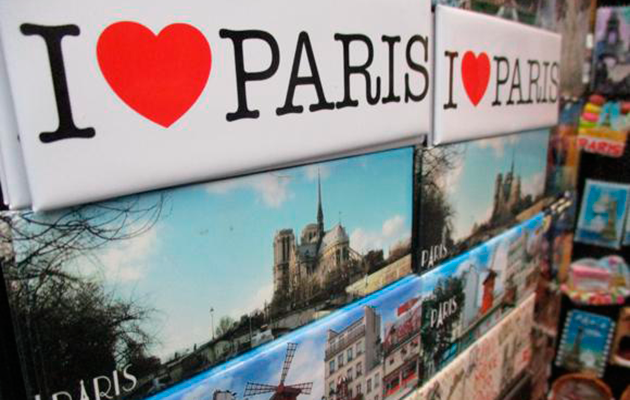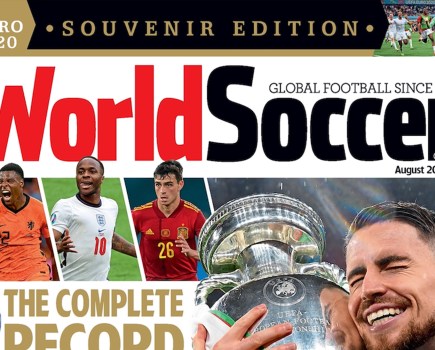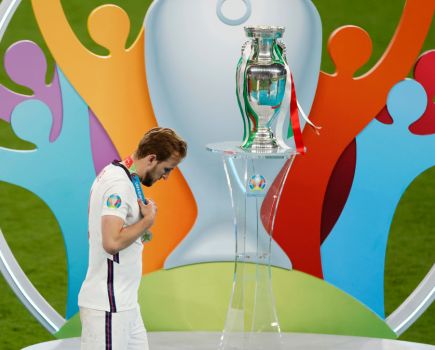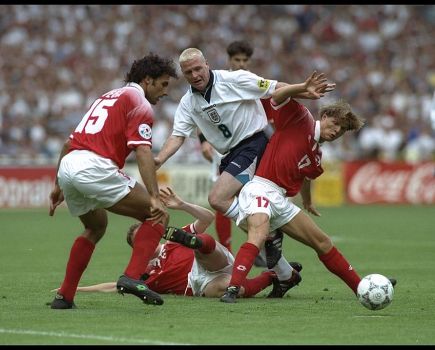Paris is one of 200 soccer cities featured on Libero, the digital travel guide for football fans. Currently featured is a comprehensive, nine-city guide to Euro 2016. Regularly refreshed with new destinations and travelogues, Libero is a one-click treasure trove of football trip tips, tales and trivia.
See www.liberoguide.com
The role of the French capital in the history and development of the world game cannot be overestimated. The World Cup, the European Championship and the European Cup were devised and agreed upon in the boardrooms of Paris, which has played host to many finals.

The most memorable have involved France itself, namely the European Championship win of 1984 starring Michel Platini and the World Cup win of 1998 starring Zinedine Zidane. The venue for 1984, the Parc des Princes, and the arena built for 1998, the Stade de France, are international stages worthy of any great occasion.
Each is a major host of Euro 2016 – surely to be overshadowed by issues of security after the terrible events in the French capital in November 2015. As part of a city-wide wave of terrorist attacks, the Stade de France was targeted by suicide bombers during a match between France and Germany, explosions clearly heard around the packed arena. Four died outside the ground, including the three attackers.
The tragic events occurred just as the domestic club game is going through a significant and seriously funded revival. Football in the French capital has changed completely thanks to the huge financial injection by the Qatar Investment Authority in Paris Saint-Germain, now crowned champions four times running. Based at the Parc des Princes, until 2013 PSG had only claimed two titles in over 40 years.
As well as the arrival of Zlatan Ibrahimovic, the signing of David Beckham put PSG onto a level they had never known before. After the first post-Qatar title win of 2013, PSG beat moneyed Monaco to a second consecutive title in 2014. In 2015, they went one better and won the treble.
2016 saw PSG win the title by mid-March, sweeping everyone aside. There’ll be no more Zlatan in 2016-17, however – and European success has proved elusive.
Bearings

Paris has two airports: Charles-de-Gaulle and Orly. CDG is 25km (16 miles) north-east of the city centre. The RER (suburban rail) line B takes 25 minutes to reach the Gare du Nord, the main train station and terminus for Eurostar services from London. RER trains (single €9.10) run every 15 minutes. A taxi to town should cost about €50.
Orly is 13km (8 miles) south of town. The Orlyval shuttle links with Antony on the RER B line (€10.90 including onward journey to town). A taxi to town should cost about €35.

Some budget airlines use Beauvais airport, 85km (46 miles) north of Paris, linked by buses (€15.90 online/€17) to Porte Maillot (journey time 1hr 15mins).
City transport in Paris consists of métro, RER lines, buses and trams. A single ticket is €1.80, a carnet of ten €14.10 and a Mobilis day pass €7 for zones 1 and 2 (including the Stade de France). For a taxi, call +33 60 76 04 914.
For the Stade de France, two RER stations, La Plaine-Stade de France (line B) and Stade de France-Saint-Denis (line D) are both one stop from Gare du Nord (12 minutes) but require a ticket (€2.50) beyond zone 1. The day pass Mobilis (€7) for Paris covers this part of zone 2.
From the Gare du Nord, for RER B, follow the plane icons signposted in the RER area – trains for the Stade also serve Charles de Galle-Roissy airport. The signs lead you down to adjoining platforms 41 and 43. Check the departure board that La Plaine-Stade de France is illuminated.
Bed

Reservations can be made at parisinfo.com.
For the Stade de France, the four-star Suite Novotel is directly opposite, on restaurant-lined rue Jules-Rimet. Rooms start at €110 but are quickly booked for big games. There is also an Ibis on two sides of the stadium: Sud and, one star up, Ouest, plus a bottom-of-the-range Formule 1 option nearby.
For the Parc des Princes, by Porte de St-Cloud métro station, the three-star Hôtel Murat usually has doubles for under €170. The nearby Holiday Inn Paris-Auteuil should charge around €270.
Convenient for the Eurostar terminus and transport to the Stade de France, hotels of varying quality ring the Gare du Nord. In the Accor group are the Ibis Styles Gare du Nord TGV and the four-star Mercure Terminus Nord while in a similarly wallet-friendly nationwide chain is the Kyriad Paris X Gare du Nord. Squeezed between the chains, the Richmond and the New Hotel are perennial cheapies. Even cheaper, a short walk away right by the Gare de l’Est, the Lorraine (3 rue d’Alsace, +33 1 40 35 81 80) is strictly no-frills but eminently affordable.
Also in the vicinity, and in the lower price range, the Campanile 10 is another nationwide chain while the Hôtel des Arts is conveniently located in Bastille. For St Michel, the Hôtel de Nesle is that rare combination of charming and affordable.
Stadium/Stade de France

The Stade de France is the country’s national stadium, due to stage the opening game and final of Euro 2016.
Built for the 1998 World Cup, the Stade is set around a former gasworks in what was a run-down neighbourhood. Since then, this futuristic arena has been the main stage for the French game – home of Les Bleus from Zidane to Ben Arfa, scene of every single domestic Cup and League Cup final since 1998 – the Stade has contributed to the revival of the surrounding area, with tall, swish offices and hotels where only derelict buildings used to be.
Sadly, this history has since been overshadowed by the terrible terrorist attacks of November 2015.

Spectators invade the pitch of the Stade de France stadium after the international friendly between France and Germany was halted after a terrorist attack outside the stadium and throughout the city of Paris.
The French Football Federation decided to build a new national stadium when France won 1998 hosting rights, after the country’s disastrous performance at Euro 92. Not having qualified for the previous two major finals, France and the French game needed to recapture the glory of the 1980s, when Michel Platini captained the host nation to victory at the Euro 84 final at the Parc des Princes.

Back then, the Parc was the de facto national stadium. Its expansion was tricky, given the proximity of the Péripherique ring road and residential buildings. The brave step was taken to site the new arena in St Denis, between the city’s main airport of Charles de Gaulle and main station, the Gare du Nord, connected by swift, suburban train, the RER. Even braver was the design, by the four-man (and French) SCAU design team later responsible for the rebuilding of Euro 2016 semi-final venue, the Stade Vélodrome in Marseille.

The major and most expensive feature was the signature elliptical roof, which cost €45 million alone, held up by 18 steel masts and appearing to float over the body of the stadium. ‘Heavier than the Eiffel Tower and longer than the Champs-Elysees,’ as they like to say on the stadium tour, the roof allows in plenty of precious sunlight. The other key feature was the movable lower stands, slid back for athletics meets and big rock concerts.
The total cost came in at just under €300 million – about a third of the new Wembley a few years later.

Beer

At the Stade de France, bars line avenue Jules Rimet on the east side of the stadium nearest the main entrance.

The first is Le Rendez-Vous, a classic corner brasserie with tasteful decorative nods to rugby and football – note the images of Eric Cantona and David Beckham. Nearby is La 3ème Mi-Temps, also recommended, a friendly, laid-back two-floor venue. Alongside, the more prosaic Le France at No.33 is a standard brasserie.

Around Paris, there is a bar on every corner. Locals still flock to Oberkampf and Bastille while tourists swarm around St Michel. There, happy hour at 4pm on rue de la Huchette sees a frenzy of activity, bar staff trying to tempt in punters with promises of cheap (€5!) pints. Venues include Bull’s Brothers, Ze Bar and Georges Café.

Friendlier establishments include the sport-centric expat chain of Frogpubs, with five branches in town. These are smart operations with own-brewed beer and a textopint service to buy someone a drink by your mobile phone. Another chain is O’Sullivans, which also specialises in post-work drinks, pub grub and TV sports. Half-a-dozen branches are placed in prominent spots around the city. Irish-themed Corcoran’s has seven operations around Paris.

On the Left Bank, The Long Hop on rue Frédéric Sauton is a long-term favourite, a steep stroll away from the Bombardier. On the same side of the Seine, The Mazet (61-63 rue St-André-des-Arts) can be great on its night.








